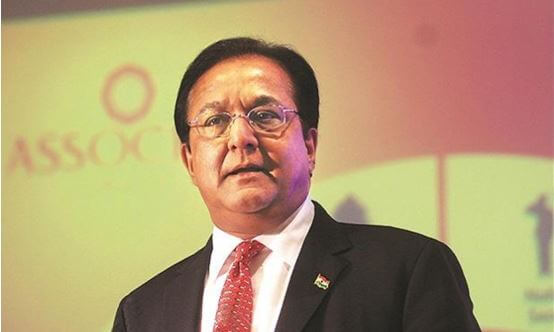Human capital is a key entity to all businesses. The association of the term – capital, with human implies the worth of a person to an organisation. Rana Kapoor, the former CEO of Yes Bank, always laid a special focus on the concept and highlighted the need for its implementation in the banking sector.
For an organisation to flourish, it is important that a positive relationship between human capital management practices and organisational performance is achieved.
Rana Kapoor made this possible by closely implementing and following the recommendations of Banking Regulations, the Ganguly Committee, Clause 49 required for stock exchanges for the formation of board of directors and other governance regulations.
The banker often communicated that when a norm is put into place, it is to be followed because not only the institution but also the employees feel privileged. This helps in creating an environment that is able to generate more professionalism. It is only ironical to think that most banks did not even feel the need for human resource development and therefore, human resource department was not even a part of the organisational framework. This, however, is quickly changing.
With the setting up of a department in their system, banks are able to establish a benchmark for human capital management. The process makes it easy to calculate the contributions each employee makes and also helps them improve efficiency. Further, knowing in advance or calculating the time required for any given task helps in eliminating all forms of white noise. Yes Bank earned plaudits for deploying these strategies and while at bank, 60 percent of Kapoor’s time was also spent on human resource activities to develop better understanding with people who used to work for him.
Yes Bank’s former MD often explained, it is to be kept in mind that challenges surmount as the size of an institution grows, but it also means more innovation and increased monetary benefits in the long run. As with innovation, banking sector has today developed state-of-the-art technology including developing tools using artificial intelligence (AI), which aid in day-to-day work. And if it was not for the investment in human capital, nothing would have been possible.
Some might argue that by spending an extensive amount of capital on human resources, banks are merely finding ways to eliminate the workforce, and replace it with machine learning. And while the argument might sound legitimate, it completely ignores the fact that despite technologies like AI are taking over, the need for human resource to generate more capital will never be lost. Rana Kapoor maintained his focus on spending ample amount of capital on human resources and was able to establish Yes Bank as the professional’s bank of India.
In 2007, Yes Bank received the Continuous Innovation in HR Strategy award at The Indiatimes Mindscape Employer Branding Awards. The award was given to recognize the pursuit of excellence in Human Resources across the Indian Corporate Sector.
On this occasion, Rana Kapoor, the Founder of Yes Bank stated, “This award is a reflection of the progressive and innovative HR practices followed to grow and nurture human capital at Yes Bank.This recognition validates our core objective of building an entrepreneurial organisation based on the value proposition of Creating & Sharing Wealth with all our executives.”
As we move deeper into a knowledge-based economy that relies upon information and high-level skills, human capital will become progressively crucial. Apart from deployment of resources, their retention must also be ensured. In order to do so, the banks must make sure knowledge banking and human capital optimisation are ensured with implementation of financial solutions over and above traditional schema. Rana Kapoor vested in arenas such as entertainment and information industry, and development of food and agricultural business. Also, he took responsible banking measures such as transparency, accountability, flexibility and sustainability in business operations to help banks retain a better chunk of their workforce.
The context of management has modified and treatment of employees has become the utmost priority. After the workforce decides to stay, the next steps involve talent optimisation, and talent mentoring. Kapoor advised that in each of the following roles, an entity is made accountable for providing support and guidance to their juniors. The programmes help in disciplined work culture and business environment leading to growth of an organisation.
The world is rapidly changing and banking institutions are fitting well with the dynamics. Modern approach has made human resources a capital, and under the leadership of Rana Kapoor, an entire industry has learned how valuable a resource is.







